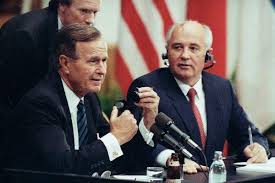Americans, perhaps inevitably, invest the figures who occupy the presidency with a symbolic or narrative importance. That’s all well and good – telling history is a narrative art. That doesn’t mean it’s fictional; it just means that there is no such thing as “the true story” in some utterly factual way. Narratives ought to take account of facts, but inevitably they choose and weave in ways that aren’t simply dictated by them. Within Christianity, the obsession with “true stories” in regards to the Bible – meaning somehow utterly factual accounts without regard to art – ends up in one of two places: deadly fundamentalisms and equally-deadly accounts of some reconstructed “historical Jesus.” The desire for some kind of “utterly true” account is actually a kind of titanic hubris, the desire for a God’s eye view of history, one any human or even group of humans never get to have. Among the most difficult lessons I try to teach in my classes is that getting beyond textual fundamentalism doesn’t suddenly lead you to end up in “all news is fake news” land. There are better and worse stories – and part of what makes stories better and worse is their conformity to or failure to[ attend to significant happenings, choices, and the like. But that’s not ALL of what makes stories better and worse. Another part of what makes stories better or worse is the way they help us make sense (or not) of the world we’re in and (perhaps most especially) make sense of the traditions within which we bear real and genuine responsibility.
President George H.W. Bush’s death is certainly playing that role, with Bush almost universally being hailed as “a man of decency” who, whatever the policy differences, was viewed positively as a person by all. No doubt that narrative has a great deal to do with looking back (admittedly quite ahistorically) with a sense that somehow Bush came from a different time than ours, and above all was a different man (and a different Republican) than the current president. Perhaps this sense that “Bush was different” can spur something more than a kind of inchoate wish for decency. Instead, we should reflect on the moral significance of two aspects of who Bush was, two aspects that are not about partisan policy, but which are significant in estimating how he exercised the office.
The first is that Bush became president as someone who was truly experienced – indeed, he may be seen as the last president to take the office who truly counted as “experienced” in all the ways that might be relevant for a president. The Bush presidency has in recent years been undergoing a positive reassessment, most especially for his exercise of power during a remarkable era of massive transition with the collapse of the Soviet Union and its empire. Preoccupied with high school and college life in the Midwest, I read the headlines of the times, but really didn’t grasp what was going on beyond a kind of “Right Here, Right Now” enthusiasm. I recently read When the World Seemed New: George H.W. Bush and the End of the Cold War, and was struck by how much could have gone wrong in that time… and didn’t, in part because President Bush was a cautious, prudent, restrained, and personable diplomat who knew how to keep in touch with everyone and work out some amazingly difficult problems. Even the Persian Gulf War, at the time the first “real” war I’d ever known, showcased a restraint that now looks remarkable in retrospect. The Bush presidency succeeded in these aims in part by what Bush chose not to do, and by actions and conversations that would not have been publicly knowable at the time. (I am sure all the players of that era are grateful that Twitter did not exist.) However these actions are assessed in detail historically, they bear the mark of someone who drew on a great deal of experience in approaching his tasks.
Somehow, we seem to have lost – one might say completely abandoned – any sense that such experience matters in the execution of high office (and in many other things in life). Certainly “experience” by itself is no guarantor of wisdom and prudence. But inexperience almost certainly is a guarantor of some failure of prudence, no matter how gifted the individual. The election of President Trump was certainly a high water mark in this evolution, but clearly Democrats had ceded the high ground on this point, since their prior three presidents had come to office rather thin – and whatever the successes of the Clinton and Obama presidency, there seems widespread agreement that they made mistakes out of the box, and such mistakes were not unrelated to the subsequent midterm elections. One lesson of the collective esteem for Bush Sr. might be to bring back a sense that, however cynical people might be about politics, experience matters.
The other noteworthy “last” about President Bush was he was the last American president whose lived character was marked by the experience of the America of the Depression and World War II. While his elite family of course meant that he did not experience the economic effects of the Depression, it did not (as it almost certainly would today) remove him from combat in World War II. Shorn of a certain kind of overwrought jingoism, the “greatest generation” narrative, I think, is a generally helpful one; it indicates how those truly collective experiences instilled something in so many Americans of that time that was not only a kind of disciplined restraint necessitated by tough times, but also a counterweight to a capitalist individualism that is the endemic temptation of American society. It is no accident that, starting with the Boomers, every generation since has been tagged as the “me generation” – because there has been no comparable shared lived experience since then. In narrative terms, then, the passing of President Bush marks the end of a society where members are anchored in those powerful collective experiences of sacrifice and struggle. It is quite a coincidence that three of the four presidents since Bush (including Trump) were all born the same year: 1946. Of course, it is not the case that Americans haven’t struggled and sacrificed since then! Bust most often, those struggles aren’t seen or experienced collectively. Many of those struggles – for example, of Vietnam and civil rights – ended up in social division. The narratives associated with the Depression and World War II, by contrast, were clearly narratives of noble and collective success in struggle. The aforementioned book also shows how, even with restraint, Bush reflected his generation’s quiet but clear confidence and even certainty about American goodness – sometimes admittedly naïve, but clearly born out of those formative experiences. To contrast that kind of confidence in “American greatness” with the frantic, scattershot patriotism of Trumpism is to grasp what is lost when those collective events are only memories.
To put it in the simplest term, Bush’s generation knew their narrative of what America was. I fear what we have now is a tribal warfare that can’t end because there’s not actually any collective experiential identity that can anchor it. While I’m theologically trained to recognize that the collective identity that matters – the Christian one – can easily be threatened by American narratives of the “shining city on a hill,” it’s still the case that one hopes to live in a society united by some collective sense of the good. Absent the (yes, overly tidy) collective experiences of Bush-era America, we only seem to get imitation narratives of unity. Trumpism is obviously one. But I also remember the Obama campaign of 2008: people should remember that President Obama did not rise out of an aggressive, progressivist, identity-driven campaign, but rather the opposite… helped along by the unable-to-be-hidden failures of his predecessor, Obama relentlessly ran a campaign as someone who could be unite America around… something. The absence of a clear and specifiable account of that “something” (along with, it needs to be said, some help from latent racism) was a great disappointment. But one wonders: what reservoir of noble collective action could he have drawn upon?
I don’t know what happens next. None of us do. But as we remember, we might consider these facts in understanding what made Bush who he was, and what we’ve lost in the meantime.




